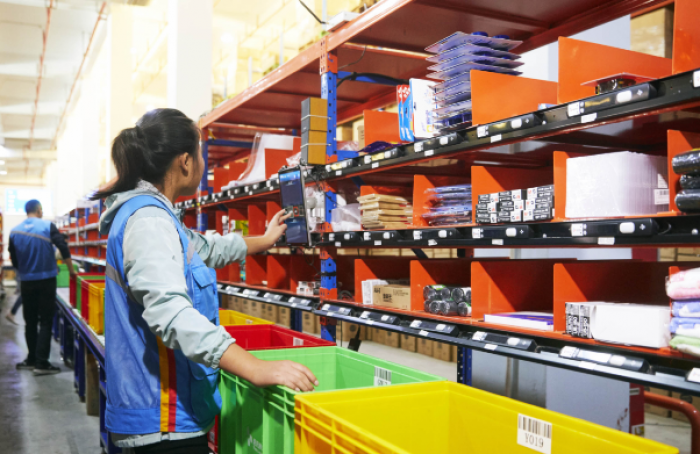Logistics
CJ Logistics steps up automated distribution system in SE Asia
The firm has introduced its homegrown technology for logistics management in Malaysia and Vietnam
By Jun 09, 2022 (Gmt+09:00)
1
Min read
Most Read
LG Chem to sell water filter business to Glenwood PE for $692 million


Kyobo Life poised to buy Japan’s SBI Group-owned savings bank


KT&G eyes overseas M&A after rejecting activist fund's offer


StockX in merger talks with Naver’s online reseller Kream


Mirae Asset to be named Korea Post’s core real estate fund operator



South Korea’s major logistics firm CJ Logistics Corp. is accelerating business expansion in Southeast Asia. It has started applying a homegrown automated logistics system to its warehouses in some Southeast Asian countries for higher productivity, the company announced on June 9.
The e-commerce market in Southeast Asia rapidly expanded during COVID-19, increasing the need for automated logistics systems in the region. Before the pandemic, the majority of warehouses in the region handled logistics processes in person, CJ Logistics said.
The Korean company has introduced its in-house multi-purpose system (MPS) technology in the Malaysia-based warehouses. MPS delivers information on picking, sorting, packaging and loading products to workers in real-time, enhancing order processing efficiency.
The MPS device, called multi-purpose indicator (MPI), automatically updates the location and number of goods. This system has increased productivity by more than three times in Malaysia, according to CJ Logistics.
The firm’s Vietnam-based retail logistics centers are using an in-house digital assorting system for picking and loading mass production of goods. With just a simple digital scan, the system shows the number of goods that should be in a logistics box for transport. This is one of the most commonly used technologies in CJ Logistics’ Korean warehouses.
The company is planning to use these systems in logistics centers in other Southeast Asian countries such as Indonesia and Singapore.
The Korean firm operates 279 logistics bases in Asia, the Americas, Europe and Africa, including more than 50 Asia-based warehouses, terminals and ports. In Malaysia, it acquired local firms EC Freight Forwarding and Century Logistics in 2008 and 2016, respectively and manages two logistics bases. The Korean firm also purchased leading Vietnamese logistics company Gemadept in 2018 and operates 10 local logistics bases.
Write to Jong-Kwan Park at pjk@hankyung.com
Jihyun Kim edited this article.
More to Read
-
 LogisticsSK gas stations to become CJ Logistics micro-fulfillment centers
LogisticsSK gas stations to become CJ Logistics micro-fulfillment centersAug 27, 2021 (Gmt+09:00)
1 Min read -
 CJ Logistics, NPS eye sell-off of Chinese logistics unit
CJ Logistics, NPS eye sell-off of Chinese logistics unitOct 08, 2020 (Gmt+09:00)
2 Min read -
 CJ Logistics seeks to sell construction business; Credit Suisse named as advisor
CJ Logistics seeks to sell construction business; Credit Suisse named as advisorAug 20, 2020 (Gmt+09:00)
1 Min read
Comment 0
LOG IN


